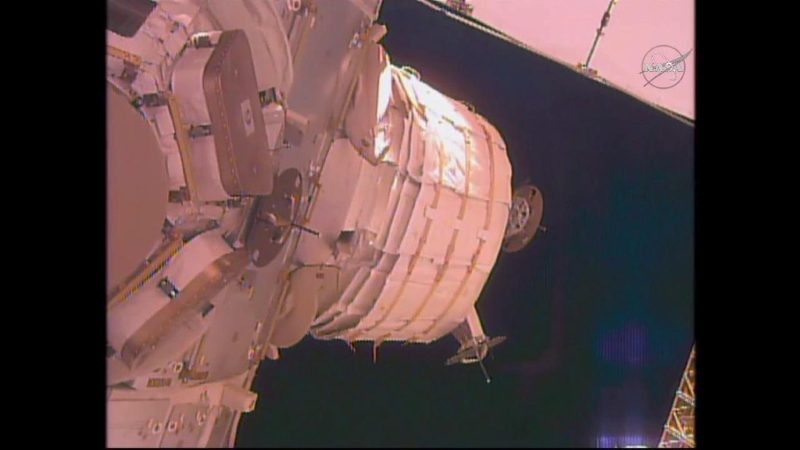NASA Fail to Deploy Inflatable Space Habitat
Alexander Neil / 9 years ago

Back in March, we found out that NASA would be testing the viability of alternative space habitats, in particular, ones of the inflatable variety. Today, the first of these habitats began to be tested on the ISS, but unfortunately, the module did not expand properly and was unable to reach its full size before the mission was called off.
The Bigelow Expandable Activity Module or BEAM was delivered to the ISS by one of SpaceX’s rockets last month as they resumed their supplying of the ISS after last years’ incident. Today’s deployment of the module was supposed to mark the beginning of a two-year trial period of the inflatable habitat technology in space aboard the ISS. Should it be successful, inflatable and other types of habitat that are capable of being compressed and unpacked in space will allow for increasingly large space habitats as rockets are capable of carrying more on each mission.
Today’s deployment started off smoothly with the straps restraining the BEAM being successfully cut free. ISS astronaut Jess Williams then began to pump air from the station into the BEAM to inflate it. Despite this, the module failed to expand and the ground controllers overseeing the mission call off the mission with ground controller Jessica Meir informing Williams that “We’ve been assessing all the parameters here from the ground, and due to our set of no-go conditions and not seeing any noticeable movement, we’re going to have to reassess further from here.”
Expansion of the @BigelowSpace Expandable Activity Module is called off for today. Updates: https://t.co/fjAFP6lgsk https://t.co/sgrboJfy2q
— International Space Station (@Space_Station) May 26, 2016
NASA and Bigelow Aerospace are now working closely together in order to investigate why the BEAM failed to inflate as planned as well as assess the safety of attempting a second mission to inflate the BEAM, potentially as soon as tomorrow. Hopefully, the habitat will be able to function correctly the second time around and it won’t be cancelled as that would cause a setback in attempts to make more easily launchable space habitats and modules.



















